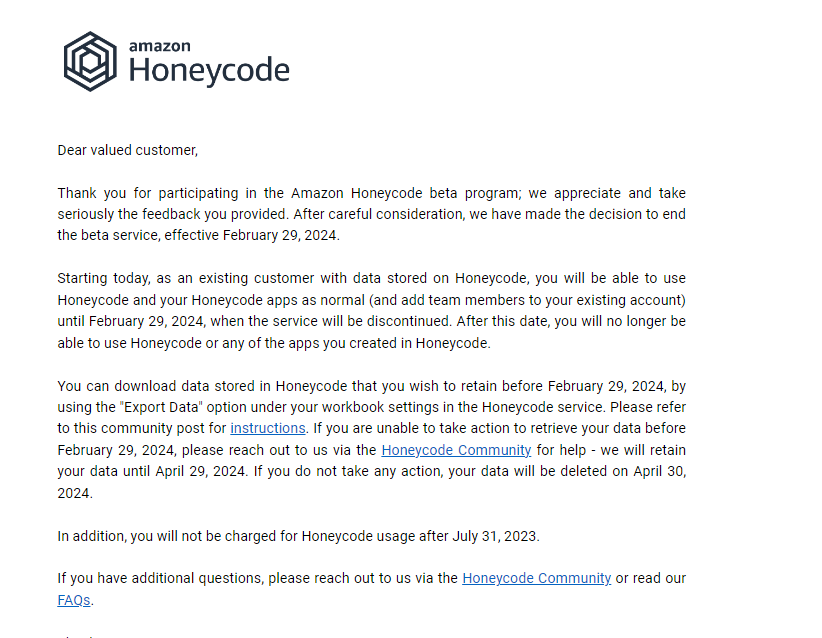https://www.honeycode.aws/features
Amazon just launched their No-Code app development platform. This is big news. Microsoft has their Power apps platform for quite some time now. But when AWS launches it, instantly the developer and creators community will love it. It’s also very very affordable compared to all other similar products.
Airtable and HoneyCode do not compare head-on-head. Since Airtable is database first and an app maker second whereas HoneyCode is just the opposite.
But AWS launching this is a huge move in the industry of no code apps.
Please share your thoughts on this!!!





